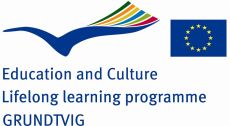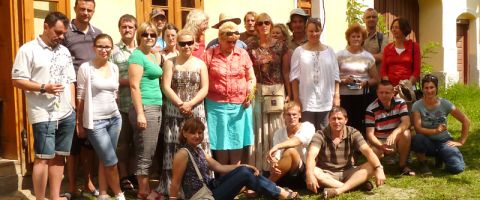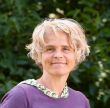EU Project Grundvig
Our Agro Bio Diversity
The aim of this Learning Partnership is to develop a network of non-governmental organizations in both old and new EU Member States.
Introduction
Information and exchange
Years of intensive farming and industrialization in Europe have made their impact on the global environment threatening not only wildlife but also the agricultural biodiversity which is the most precious biological and cultural world heritage and the basis of our food security and sovereignty. The aim of this Learning Partnership is to develop a network of non-governmental organizations in both old and new EU Member States. The project includes information exchange about several ongoing educational projects of each participant. On the basis of this exchange and experiences we would like to develop common ideas for knowledge transfer and to initiate a spirit of entrepreneurship regarding the production and use of agrobiodiversity in local communities.
Project-Partners
DDOiR Poland
For Old Varieties and Breeds (DDOiR), Poland is a association working in the field of agrobiodiversity. The main goals are: the sustainable development of the polish countryside, with special focus on the conservation and growth of genetic resources and agricultural biodiversity; the development and spread of organic and biodynamic farming methods, as well as the development of local food processing for organic and agricultural biodiversity products. www.ddoir.org.pl
ARCHE NOAH Austria
Arche Noah, Austria founded in 1990, a network of heirloom - gardeners and farmers, concerned with the preservation, cultivation and development of old varieties and land races of cultivated plants. Today about 9.000 members, mainly in Austria. (right now you are on our website)
EHF Latvia
Eco-health farm network (EHF), Latvia is a group of fifty certified organic farms that have been working since 2000 to integrate human and ecosystem health through innovative approaches to agro-ecotourism and community environmental education. The EHF network was coordinating an agro-biodiversity event in Latvia in 2011 with participation from scientists, farmers, cooks, and consumers to promote in situ conservation and sustainable use of agricultural genetic resources. (More information about EHF Latvia: forum-synergies.exemole.fr
ADEPT Romania
Fundatia ADEPT, Romania was established in 2005, and in its continuing activities until present has become a leading NGO in Romania in the area of agri-environment, public goods from agricultural land, support for low-income farmers and others in small-scale farming communities, creating marketing opportunities for local products, and creating links between urban consumers and rural producers. www.fundatia-adept.org
PSR Switzerland
Since 30 years ProSpecieRara, Switzerland is active in the field of agrobiodiversity. The foundation conserves 1800 fruit varieties, 1000 vegetable and 700 berry varieties. It developed a conservation program for rare breeds and helped to establish a network of 26 breeding associations. At the moment 2500 persons are actively breeding animals or conserving endangered varieties of cultivated plants. ProSpecieRara has a lot of expertise to train volunteers in conserving and breeding of plants and rare breeds. www.prospecierara.ch/
The objectives of the partnership are to:
- Increase the production and consumption of rare agricultural varieties;
- Educate farmers, cooks, and consumers about the benefits and uses of agricultural biodiversity;
- Transfer knowledge among partner organisations, as well as from older to younger generations;
- Improve English language skills and gain knowledge about specific English terms regarding agrobiodiversity, which will facilitate better transnational communication among the people working on this issue.

This project has been funded with support from the European Commission. This publication
(communication) reflects the views only of the author, and the Commission cannot be held
responsible for any use which may be made of the information contained therein.






